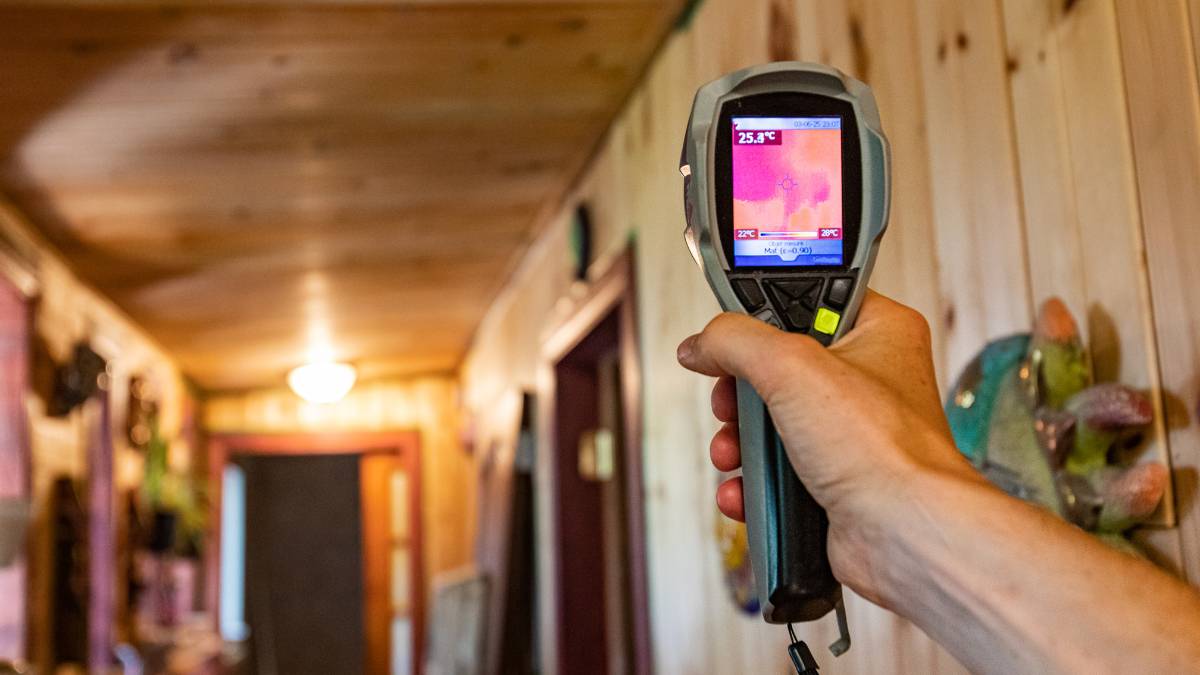Last Updated on May 19, 2024 by Kravelv Spiegel
The truth is that we spend the majority of our time indoors, whether it’s at home, in the office, or in other enclosed spaces. However, what many people fail to realize is that Indoor Air Quality (IAQ) can have a significant impact on our health and well-being.
Poor indoor air quality can lead to a variety of health problems, including respiratory issues, allergies, and even more serious conditions. In this guide, we’ll take you through the importance of indoor air quality and provide essential tips for improving it.
Understanding Indoor Air Quality
For starters, indoor air quality refers to the quality of the air inside buildings and structures, particularly as it relates to the health and comfort of the occupants.
Several factors can contribute to poor indoor air quality, including pollutants such as dust, mold, pet dander, volatile organic compounds (VOCs), and various other airborne particles. These pollutants can originate from a variety of sources, including building materials, household products, and outdoor pollution that infiltrates indoor spaces.
Effects of Poor Indoor Air Quality
Poor indoor air quality can have a range of adverse effects on your health. Short-term exposure to indoor air pollutants can cause irritation of the eyes, nose, and throat, as well as headaches, fatigue, and dizziness.
Long-term exposure may lead to more serious health issues, including respiratory diseases, cardiovascular problems, and even certain types of cancer. Additionally, poor indoor air quality can exacerbate existing conditions such as asthma and allergies, making symptoms more severe and frequent.
Related Article: Best Air Purifiers for Asthma
Tips for Improving Indoor Air Quality
Fortunately, there are several steps you can take to improve your indoor air quality and create a healthier environment for you and your family. Here are some essential tips:
Ventilation
Well, proper ventilation is crucial for maintaining good indoor air quality. It is crucial that you make sure that your home or office is adequately ventilated to allow for the exchange of indoor and outdoor air.
Open windows and doors whenever possible, especially when cooking, cleaning, or using household chemicals. Also, consider installing exhaust fans in bathrooms and kitchens to remove excess moisture and pollutants.
Maintain Cleanliness
Regular cleaning will also help in reducing indoor air pollutants. You should also vacuum carpets and rugs frequently using a vacuum cleaner equipped with a HEPA filter to trap dust and allergens.
Also,dust and clean surfaces such as countertops, shelves, and furniture regularly to remove accumulated dirt and debris. You should also wash bedding, curtains, and other fabric items regularly to prevent the buildup of dust mites and allergens.
It is also advisable to hire a professional periodically to do deep cleaning of your space to ensure that your indoor environment remains clean and healthy over time In fact, cleaning services professionals have the equipment and expertise to clean areas like air vents, high corners, and under furniture, where dust and allergens can accumulate over time and exacerbate allergies and respiratory problems.
Air Purification
In addition to maintaining cleanliness, it is vital that you invest in air purifiers to remove airborne pollutants and improve indoor air quality.
Look for purifiers with HEPA (high-efficiency particulate air) filters, which can capture a wide range of airborne particles, including dust, pollen, pet dander, and mold spores. Consider placing air purifiers in commonly used areas such as bedrooms and living rooms for maximum effectiveness.
Control Humidity
Maintaining proper humidity levels is key when it comes to preventing mold growth and improving indoor air quality. Use a dehumidifier to remove excess moisture from the air in damp areas such as basements and bathrooms.
Make sure that you keep indoor humidity levels between 30% and 50% to discourage mold and mildew growth. You can also use exhaust fans while cooking and bathing to reduce moisture buildup.
Avoid Indoor Air Pollutants
It is crucial that you are mindful of indoor air pollutants and take steps to minimize exposure to them. Avoid smoking indoors, as tobacco smoke contains a variety of harmful chemicals that can compromise indoor air quality.
Also, ensure that you limit the use of products that emit VOCs, such as paints, varnishes, and air fresheners. Choose environmentally friendly cleaning products and household items whenever possible.
Related Article: Understanding High VOC Level in Bedrooms
The Importance of Regular Maintenance
Maintaining good IAQ is an ongoing process that requires regular attention and upkeep. It is essential that you schedule routine inspections of HVAC systems, including filters, ducts, and vents, to ensure they are clean and functioning efficiently.
Ensure that you replace air filters according to manufacturer recommendations, typically every 1-3 months, to prevent the buildup of contaminants. Additionally, address any signs of water damage or leaks promptly to prevent mold growth and structural issues.
Wrapping up
Improving indoor air quality is an essential aspect to creating a healthy and comfortable living environment. Through implementing the tips outlined in this guide, you can minimize exposure to indoor pollutants and safeguard the well-being of yourself and your loved ones. Remember, small changes can make a big difference when it comes to breathing easy and enjoying cleaner, fresher air indoors.

